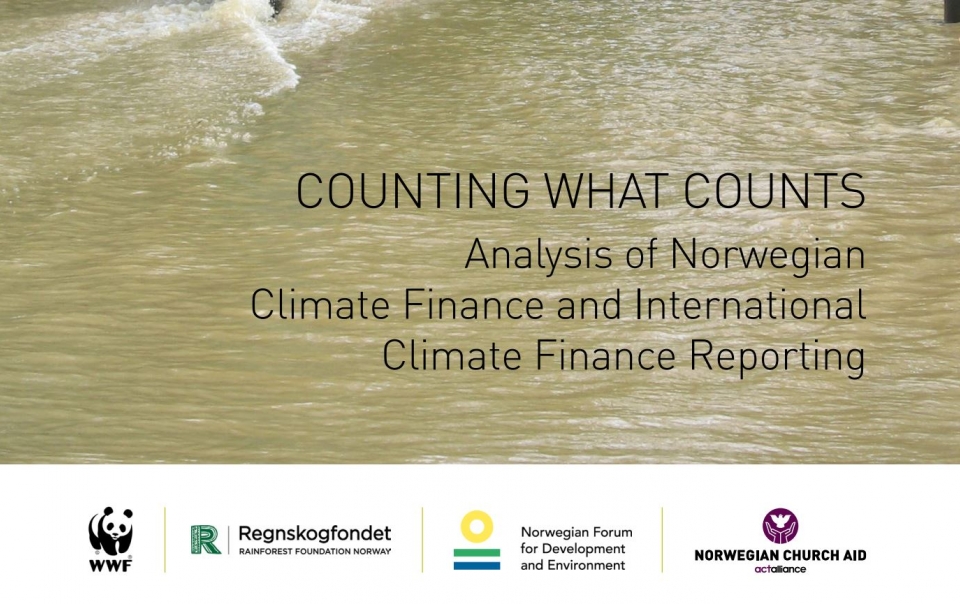Climate finance is one of the hottest topics on the UN climate change agenda. Financial commitments have been made by developed countries, but many developing countries still do not receive the support needed to reduce their own emissions and withstand the ongoing and devastating effects of climate change. Agreeing on common accounting rules for climate finance is among the biggest challenges in the UN climate change negotiations.
Norwegian Church Aid, WWF Norway, The Norwegian ForUM for Development and Environment, and Rainforest Foundation Norway commissioned this report, in order to continue a constructive dialogue with the Norwegian Ministry of Foreign Affairs and the Norwegian Ministry of Climate and Environment on these issues. However, we also wanted to look beyond Norway, more precisely at how climate finance is accounted for globally and how we can design better climate finance accounting modalities for the future. Consequently, the conclusions and findings in this report are relevant for a much broader audience than only Norwegian actors. In brief, the findings of the report have given rise to recommendations for how to move these negotiations forward, and how Norway can play a bigger role:
- Developed countries, including Norway, need to increase their contributions to climate finance. Norwegian climate finance has declined in recent years.
- Countries should report with greater accuracy how much of their climate finance actually contributes to climate change mitigation and adaptation. Some countries, including Norway, report all projects with a degree of climate relevance as 100% climate finance, while other countries differentiate the percentage they report depending on the climate relevance of the project.
- Only the grant-equivalent or net-value of climate finance should be counted. Some countries do not count for example export credits or market rate loans that bring more benefit to the donor than to the receiver, whereas some countries do.
- Climate finance should be balanced between mitigation and adaptation. This report concludes that too little money is allocated to adaptation and to the least developed countries. This includes allocations from Norway.
- Climate finance accounting needs to be transparent and include enough information at project level to allow for scrutiny and comparability.
- Climate finance should be new and additional. Today, much climate finance is raised by reducing development aid budgets, which in reality means that the world’s poor are paying the bill for a climate problem mostly created by rich countries.
The report proposes in detail how these improvements could be made. This debate may be technical and full of numbers. However we would like to stress the importance of never losing sight of how the adverse effects of climate change affect real people’s lives, and what we can do to remedy such effects. To bring enough resources to the table, we need to start counting what counts.
